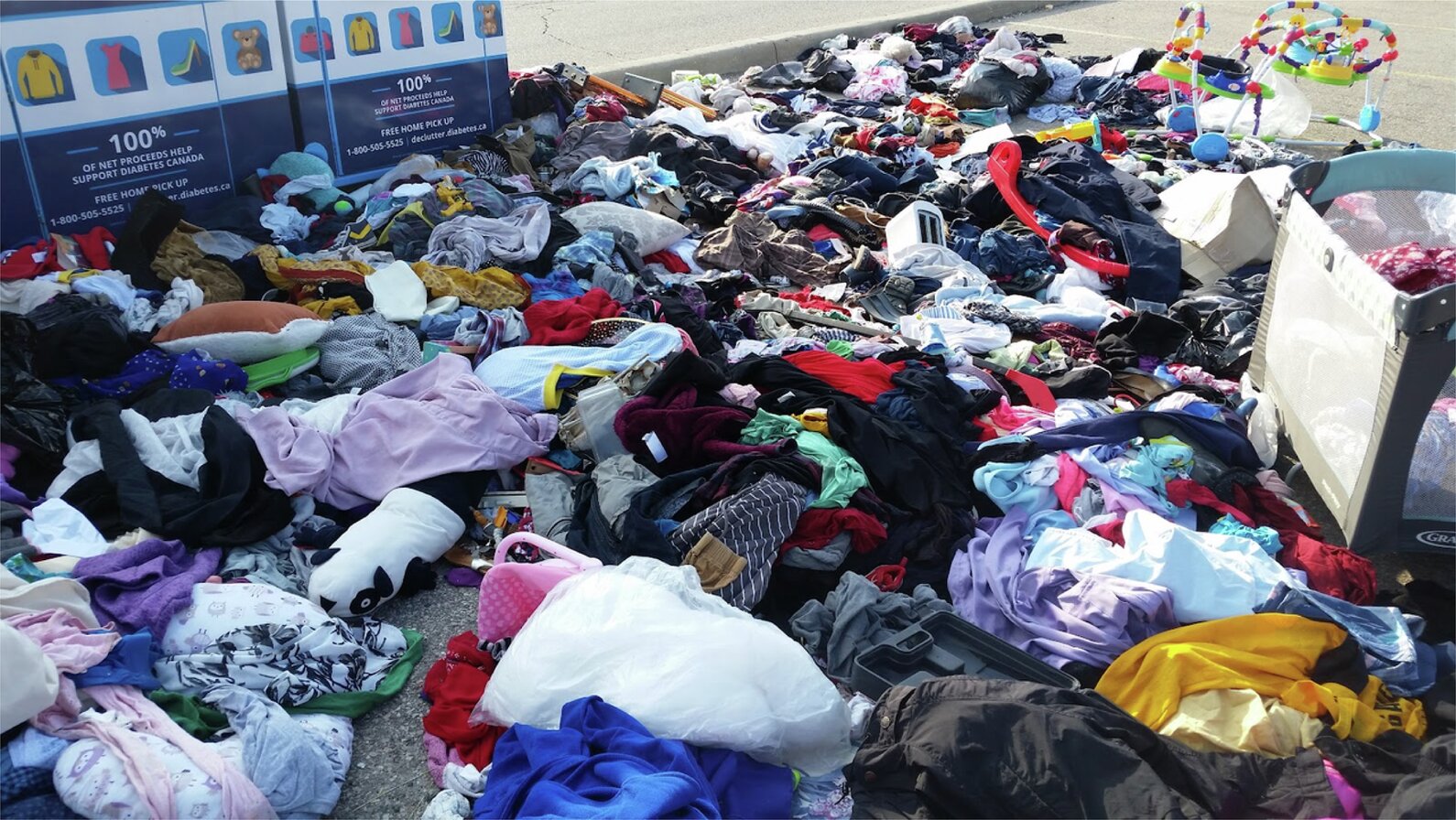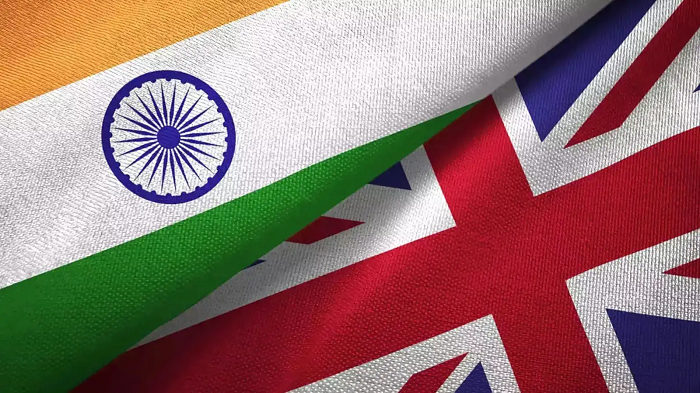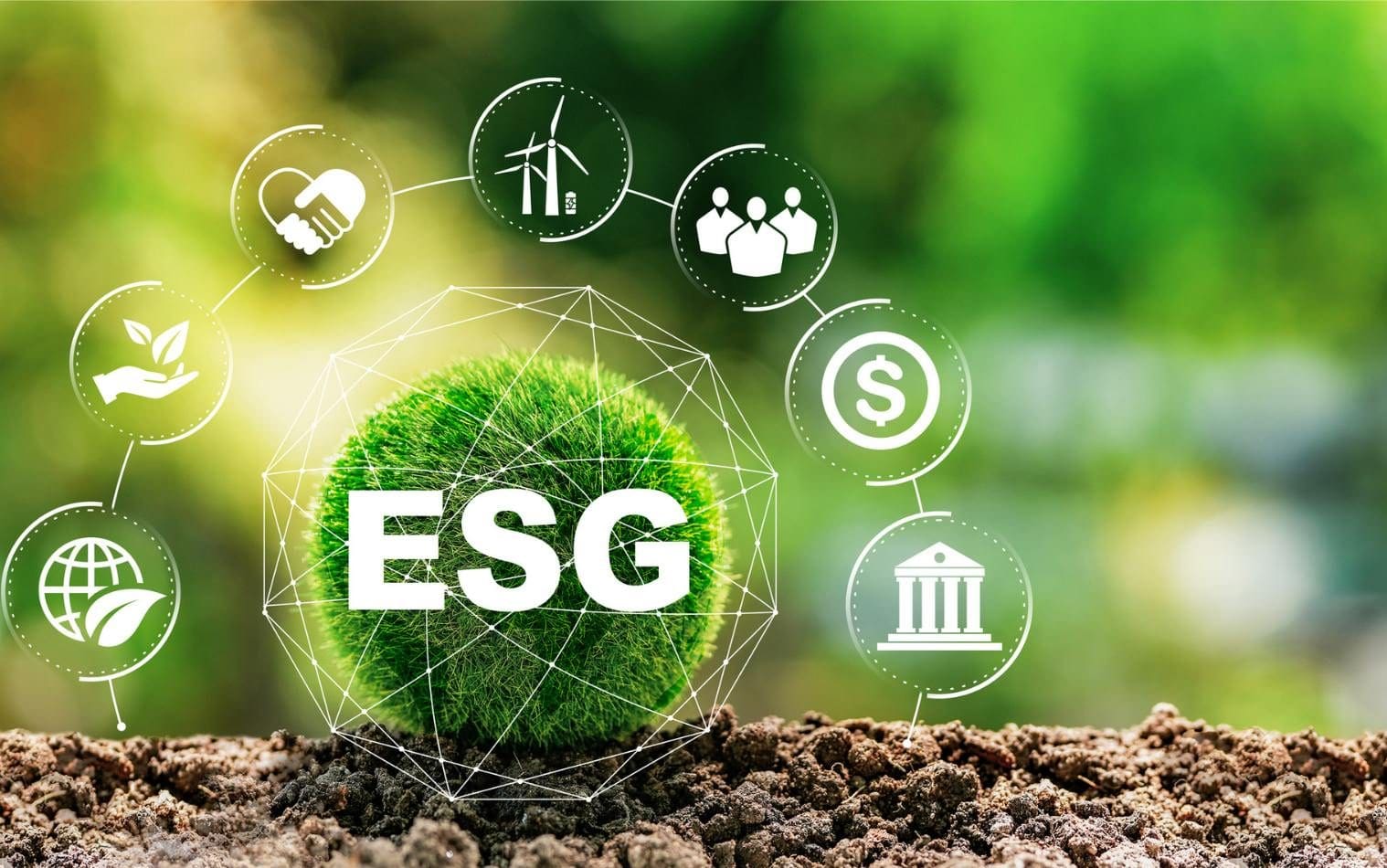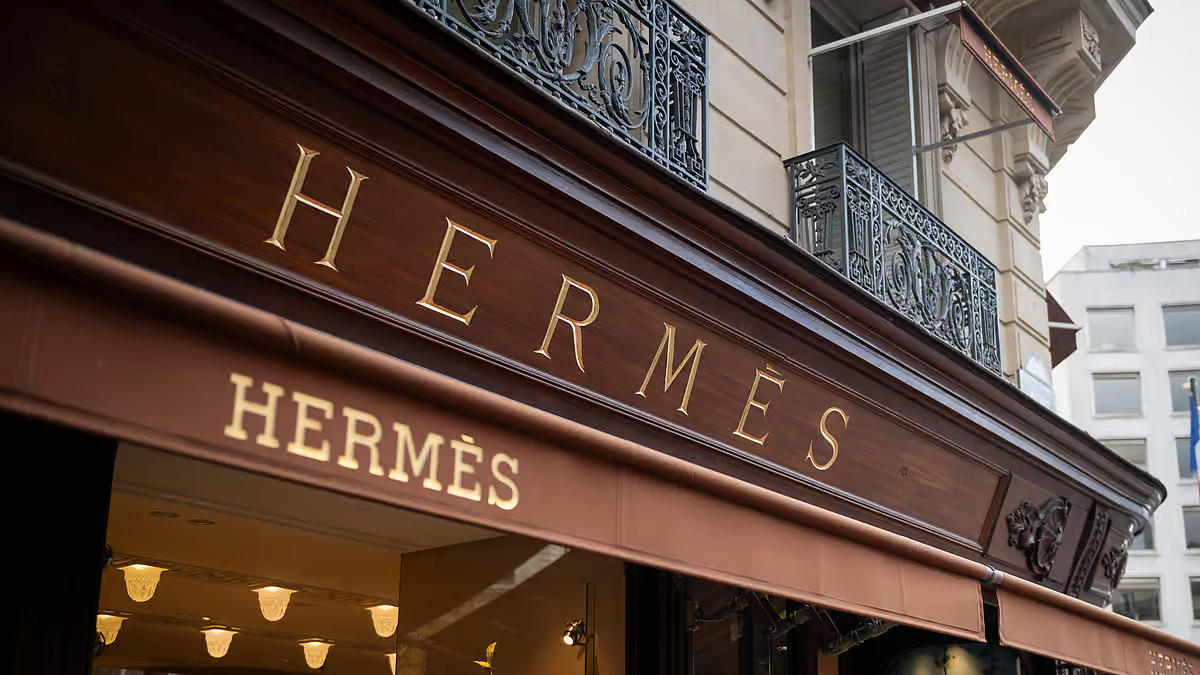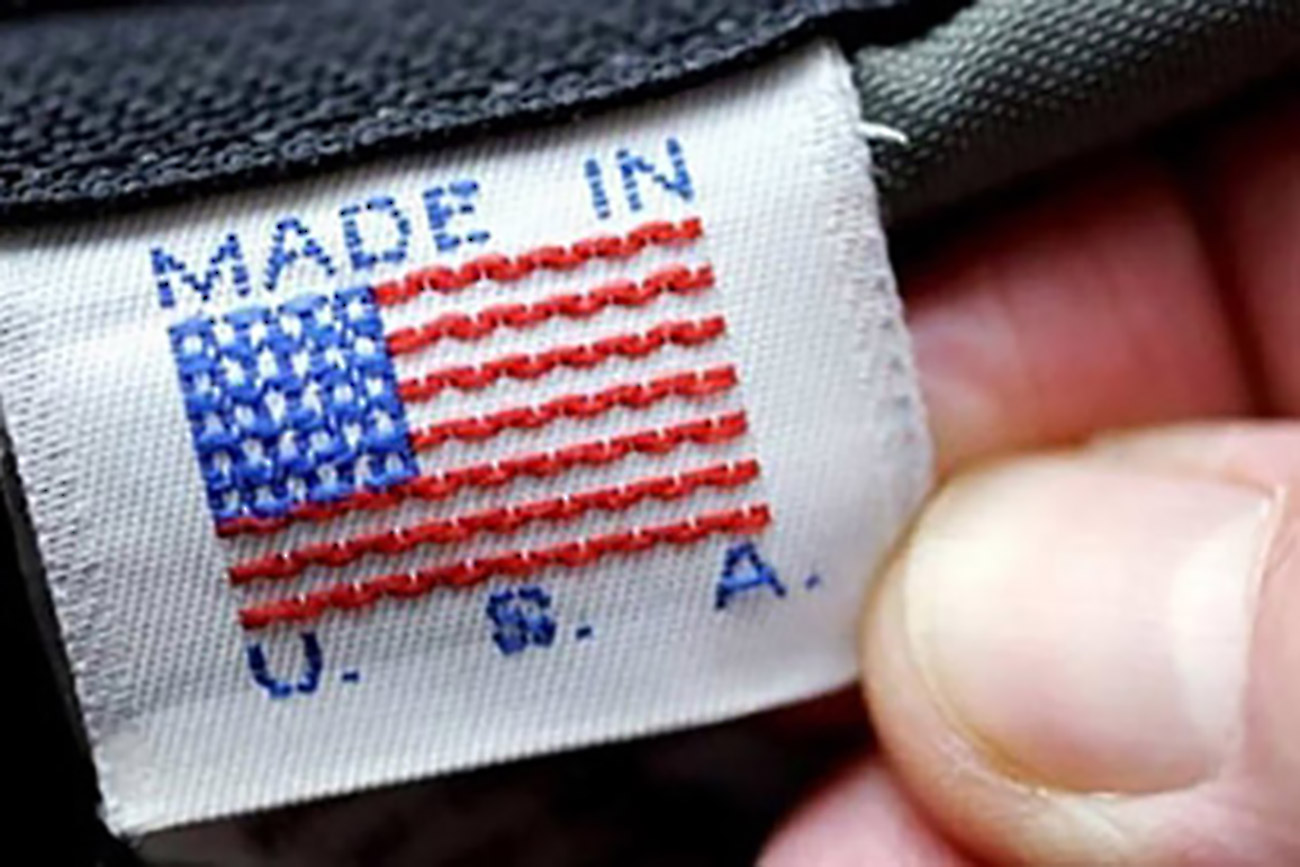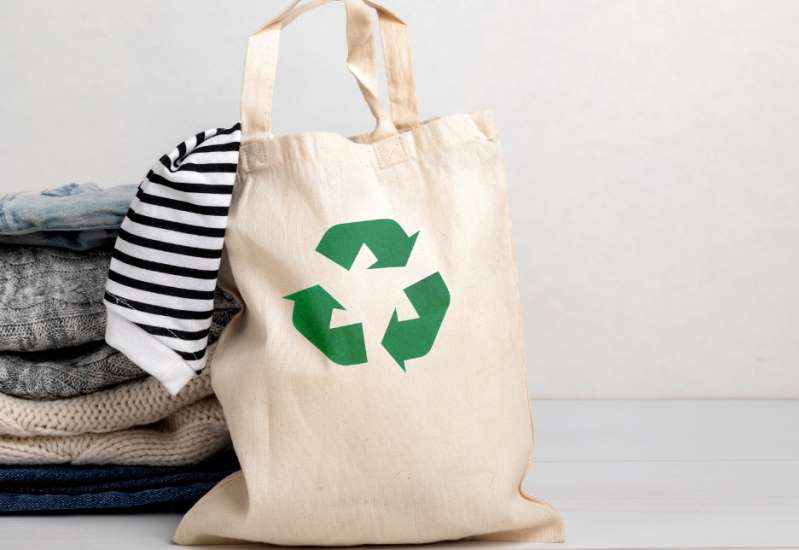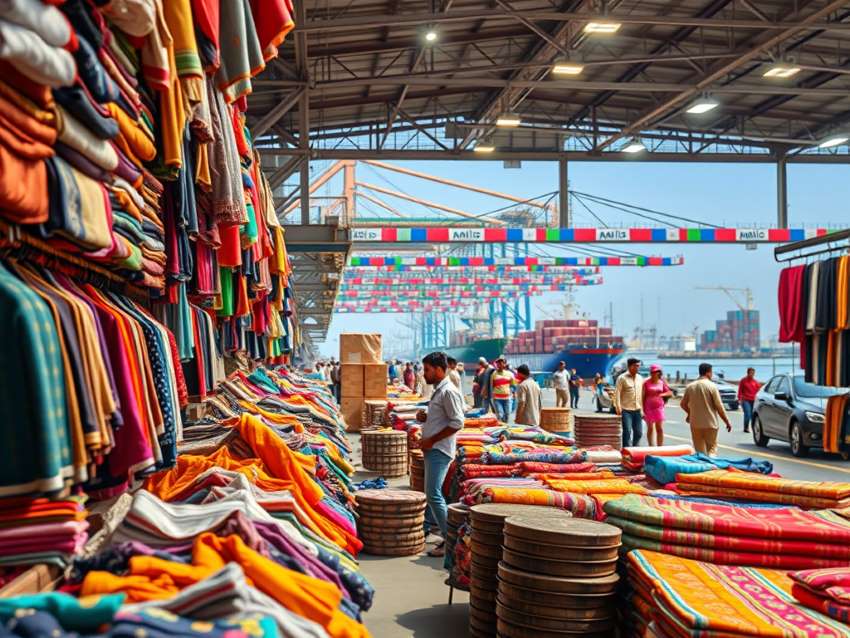FW
The global textile manufacturing market is poised to grow at a CAGR of 4.52 per cent or by by $346.05 billion from 2024-2028. As per a market research report by Technavio titled,‘Global Textile Manufacturing Market 2024-2028, most of this growth will be driven by the integration of automation in the textile manufacturing processes.
Automated machinery continues to enhance the quality and efficiency of textile production across various stages, including fiber and yarn manufacturing, weaving, and dyeing. As producers adopt modern technologies in order to boost productivity and quality, traditional methods like spinning and weaving are being supplemented with advanced techniques. Improved finishing processes are resulting in textiles with better durability and comfort.
Sustainability remains the key focus as manufacturers introduce new initiatives to reduce waste and enhance efficiency. Adoption of sustainable materials like polyesters, silks, wools, linens, rayons, acrylics, and nylons is on the rise currently.
Small and medium-sized enterprises (SMEs) are facing significant barriers due to the high initial costs of modern machinery. This financial hurdle impedes the adoption of advanced technologies, potentially stalling industry-wide progress and innovation. Industry leaders can mitigate this challenge by introducing more financing options and government incentives, and entering into new collaborations to support SMEs in acquiring sophisticated textile machinery, says the report.
Producers continue to grapple with increasing raw materials costs such as cotton and synthetic fibers. This issue is being further exacerbated by high production costs for traditional textiles like silk, wool, and linen, despite their strong demand.
The report states, there is an ongoing trend towards increasing adoption of automation and digitalisation which bodes well for the future of the textile manufacturing market. Driven by technological advancements and evolving consumer preferences, the textile market in India will continue to thrive, it adds
With the country primarily focusing on the production of cotton garments, investment in artificial fibers by Bangladesh continues to remain low. The country currently invests Tk7,000 crore in this emerging sector.
Bangladesh’s participation in the manmade fibers market remains minimal despite the global demand for garments made from these fibers rising. Currently, Bangladesh produces only 5 per cent of the manmade fibers garments produced on a global scale.
On the other hand, if Bangladesh could increase its investment in the manmade fiber garments to $18 billion by 2032 it would be able to increase its exports to $46 billion, says a study titled ‘Beyond Cotton – A Strategic Blueprint for Fibre Diversification in Bangladesh Apparel Industry,’ by the Bangladesh Garment Manufacturers and Exporters Association (BGMEA) conducted in March this year. This would entail an investment worth $4.6 billion in the production of fibers, filament, and yarns and $9.2 billion for manufacturing of fabrics and $4.2 billion for garment manufacturing. The proposed investment would also support the installation of 4.7 million additional spindles, 14,000 knitwear machines, and 0.5 million sewing machines.
A separate study by PricewaterhouseCoopers (PwC) for BGMEA in April also urges Bangladesh to enhance its capacity for manufacturing garments from manmade fibers. The report projects that by 2030, 60 percent of the $1,121 billion global garment market will consist of manmade fibers, with cotton and cotton-rich garments making up 35 per cent and other materials 5 per cent. In 2022, manmade fibres accounted for 50 percent of the $953 billion global garment trade, with cotton and cotton-rich fibers at 37 per cent, and others at 13 per cent.
Specifically, the global trade of four key garment items—brassieres, technical textiles, activewear and swimwear, jackets, suits, and blazers—amounted to $100 billion in 2022, with 73 per cent of this value derived from manmade fibre-based items.
Monsoor Ahmed, Additional Director, Bangladesh Textile Mills Association (BTMA), notes, there are currently six to seven mills dedicated to producing manmade fibers, and several have expanded their capacities to include both manmade and cotton fibers to meet local demand and export small quantities. However, most demand is still met through imports, primarily from China.
Abul Kalam Mohammad Musa, Managing Director, Mumanu Polyester Industry, has been producing manmade fibers from discarded PET bottles since 2018. Despite having a production capacity of 120 tonnes per day, he can only utilise half due to raw material shortages and import restrictions on necessary polymers. Musa purchases plastic bottles from scrap dealers at Tk 59 per kilogram and sells the fiber at Tk 115 per kilogram.
Similarly, Mahbubul Hasan, Managing Director, Maliha Polytex Fibre Industry, produces 120 tons of manmade fibers daily from PET bottles. However, he is concerned about potential raw material shortages that could disrupt production. Hasan established his mill with an investment of Tk 200 crore in 2017, initially benefiting from a suspension in PET bottle exports to China and India. Now, both countries have resumed imports, affecting local availability.
SM Khaled, Managing Director, Snowtex Group, a garment exporter, states, local millers currently meet less than 5 per cent of the demand for manmade fibers, forcing garment exporters to rely on imports, which is a time-consuming process.
Despite a tough market, JD Sports’ revenues grew by 2.7 per cent to £10.4 billion during the year. This growth was fueled by the opening of over 200 new stores, which exceeded sales expectations by 20 per cent. The company plans to open another 200 stores this year.
However, the company’s profits dipped by 8 per cent to £912.4 million during the year. This was attributed to lower revenue in the second half and investments for future growth. Impacted by brand disposals, the company’s revenues in the UK market declined by 8.3 per cent to £3.51 billion during the year. Its footwear sales thrived with an increase of 8.2 per cent, offsetting a decline in apparel sales due to mild weather impacting winter clothing sales.
Highlighting the strong revenue performance in a challenging market, Régis Schultz, CEO, says, the company is confident of meeting its targets for the full financial year. The first quarter of the company is already on track with expectations, he adds.
Driven by evolving consumer preferences, sustainability concerns and technological innovations, the global home textile market is poised for substantial growth According to IMARC Group's latest report, the market reached a value of $125.6 billion in 2023 and is expected to grow at a CAGR of 5.02 per cent from 2024 to 2032, reaching $195.3 billion by 2032.
A key driver of this growth is the increasing focus on personalized living spaces. With rising disposable incomes, homeowners are investing in high-quality home textiles to create environments that reflect their personal style while providing comfort and functionality. This trend extends beyond mere aesthetics, encompassing eco-friendly and technologically advanced textiles that align with broader societal shifts towards sustainability and innovation.
Sustainability has become a cornerstone in the home textile market, with consumers showing a growing preference for eco-friendly materials and ethical production practices. This demand has spurred innovation in recycling, organic materials, and sustainable sourcing, as manufacturers strive to reduce the carbon footprint of their products.
Technological advancements are also revolutionising the industry, enabling manufacturers to produce high-quality, durable, and innovative textiles at a faster pace and lower cost. Technologies such as 3D printing, automated weaving machines, and AI-driven design tools are enhancing efficiency and customization options, leading to textiles with enhanced functionalities like improved fabric strength and water resistance.
Among product segments, bed linen holds the largest share in the market due to its essential role in everyday comfort and the frequent need for replacement or upgrade. Polyester emerges as the dominant fabric segment, valued for its durability, ease of maintenance, and versatile aesthetic appeal.
Offline channels currently dominate distribution, as consumers prefer to assess the quality and texture of textiles firsthand. However, the market is experiencing a surge in e-commerce, providing consumers with easier access to a wide range of products from around the world.
In terms of regional breakdown, Asia Pacific emerges as the largest market, driven by its expansive population, rising disposable incomes, and the growing influence of local and traditional textile designs.
In conclusion, the global home textile market is undergoing significant transformation, fueled by rising consumer spending on home renovation, sustainability concerns, technological advancements, and the expanding reach of e-commerce platforms.
Alongside plans for a runway return, PVH Corp -subsidiary, Calvin Klein Inc has named Veronica Leoni as the new Creative Director for its high-end sub-brand, Collection.
A 2023 LVMH Prize finalist and founder of Quir, Leoni brings a wealth of experience from prestigious fashion houses including Jil Sander, Céline, Moncler, and The Row. In her new role, she blends her extensive industry expertise with Calvin Klein’s modern aesthetic to craft a quintessential representation of the brand. She will collaborate closely with Eva Serrano, Global Brand President, Calvin Klein to infuse inspiration from the Collection into the mainline portfolio and the red carpet. Leoni will report directly to Serrano.
Rooted in timeless and innovative designs, The Collection will feature men’s and women’s apparel, underwear, and accessories, and will make its debut in Fall 2025. Leoni’s purposeful design approach and work ethic, coupled with the brand’s shared value will help it create a collection that resonates globally.
Expressing her excitement over the appointment, Leoni affirms, her aim is to amplify the brand’s bold self-expressions by focusing on its style and creativity. Her appointment proves to be key step in a series of strategic initiatives led by Serrano to uphold Calvin Klein’s legacy and inspire the next generation of consumers.
The 14th edition of Intex Bangladesh was launched in Dhaka with an aim to foster connections among textile professionals and propel the Bangladeshi garment industry forward.
With participation from over 200 international suppliers and manufacturers spanning 7 countries, the event serves as a vital platform for global sourcing within the textile industry. It aligns with Bangladesh's vision of becoming a leading source of value-added textile products by 2030, emphasising the importance of innovation and quality in the industry.
In addition to showcasing Bangladeshi textiles, the event features a dedicated ‘Made in India Textiles Pavilion’ alongside exhibitors from Sri Lanka and other Asian countries, fostering regional collaboration and trade.
The Interactive Business Forum provides a space for insightful discussions and knowledge sharing on topics such as achieving export targets and implementing sustainable practices within the industry.
Aiming to strengthen supply chains, Intex Bangladesh addresses production gaps, and drives innovation within the Bangladeshi garment sector, positioning it competitively in the global market.
The event is supported by key Bangladeshi garment industry associations like BGMEA and BKMEA along with a strong backing from industry stakeholders, ensuring its relevance and impact.
The next edition of Denimandjeans Vietnam will be hosted on June 26-27, 2024 at Riverside Palace in Ho Chi Minh City, Vietnam.
Featuring over 40 exhibitors, the trade show will attract global B2B and B2C experts from the denim and fashion industries. Some of the prominent local and international exhibitors at the event will include industry specialists like AG Denim, Artistic Milliners, US Group, and Kassim.
Enriched with a variety of initiatives, the event this year, will host over six seminars on the latest technologies and innovations in the denim industry by renowned denim experts from around the world.
A special section dedicated to Japanese selvedge denim manufacturers will be earmarked to showcase top-notch selvedge denim from esteemed companies such as Nihon-Menpu, Yama-ashi, Shinohara, Tanchi, Kurabo, Kaihara, and Kuroki, enhancing the exhibitor lineup with their high-quality offerings.
Held for the first time since 2019, Kingpins China attracted over 40 exhibitors from May 23-25, 2024 in Hangzhou, China. The hybrid B2B and B2C tradeshow attracted several prominent industrial partners, designers and denim enthusiasts.
One of the noted exhibitors at the event included Lenzing whose team from Tencel denim showcased their latest sustainable wash wardrobe, developed in collaboration with nine domestic denim mills. Processed with eco-friendly washing techniques, this collection featured outfits ranging from workwear to casual lifestyle clothing.
One of the major highlights at the brand’s booth included the Tencel x Advance Denim Capsule Collection demonstrating various innovations using Tencel fibers in denim textiles.
The Tencel team engaged with domestic brands, e-commerce retailers, buying offices, and some international brands. On the second day, Dennis Hui, Global Business Development Manager-Denim, Lenzing, participated in a panel discussion alongside Rebecca Li from The Lycra Company and Amy Wang from Advance Denim. Moderated by Ada Wen, Chief Editor, Asia Denim Magazine, the panel delved into the topic of ‘Beyond Cotton.’ The B2B event concluded with a fashion show and an after-party, sponsored by beer brand Foison Textile.
Running concurrently with the Kingpins China Show, new B2C event, DenimKon, featured a trend area and hosted 15 workshops, including a denim flower-making session by Tencel x Advance Denim. Visitors enjoyed activities such as lucky draw giveaways, denim accessory displays, limited outfit retail, and natural dyeing workshops by Prosperity Textile, Zhangzhen Textile Arts, Sansen Denim, Panther Denim, etc. Additionally, seminars on making sustainable choices offered further insight for consumers.
The event also hosted exhibitions of vintage garments and other displays, providing attendees with inspiration and educational opportunities.
Pierre-Emmanuel Angeloglou, Managing Director, LVMH Group will assume his new role of CEO of the renowned Italian fashion house Fendi from June 01, 2024.
Angeloglou will take over the role from Serge Brunschwig, who has led the brand since 2018. He joined LVHM in 2019 as Director-Strategic Missions for Fashion and Leather Goods, Louis Vuitton. Before his tenure at LVMH, Angeloglou was the Global President of L'Oréal Paris, where he was instrumental in driving the brand's global strategy and expansion.
His move to LVMH in 2019 was a pivotal step in his career. His exceptional performance in this role led to his promotion to head the men's division by the following year. His leadership and strategic vision in this capacity earned him further recognition and a subsequent promotion to the position of executive vice president.
The Fair Wear Foundation (FWF) has signed a MoU with the Social & Labor Convergence Program (SLCP) in Amsterdam to enhance collaboration between the two parties and improve working conditions in global garment supply chains.
The collaboration will focus on the three key areas including data convergence, policy advocacy, and industry engagement. The agreement will utilise SLCP's data within Fair Wear's Human Rights Due Diligence (HRDD) facilitation hub. This integration is expected to eliminate redundant audits, enhance the quality of facility-level information for Fair Wear member brands, and support the effective implementation of HRDD.
Additionally, anonymised and aggregated SLCP data will be used to inform Fair Wear Foundation's country risk scoping tool.
Further, Fair Wear Foundation and SLCP will work towards unified policy positions and increase engagement with key stakeholder to drive systemic change across the garment and textile industry.
Janet Mensink, CEO, SLCP, states, the use of SLCP in the Fair Wear HRDD hub exemplifies effective data sharing to reduce duplication and drive improvements in working conditions.
Alexander Kohnstamm, Executive Director, Fair Wear Foundation, describes the MoU as an ‘important step’ towards industry-wide alignment on impactful HRDD implementation, crucial for ensuring that new European legislation benefits garment workers.
The partnership between Fair Wear Foundation and SLCP is underpinned by their joint recognition of the OECD Due Diligence Guidance for Responsible Business Conduct as the leading HRDD framework. Both organisations advocate for a smart mix approach to HRDD in supply chains.


